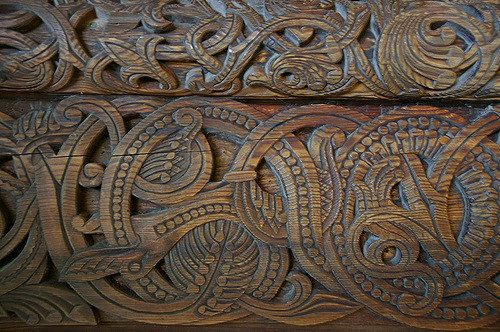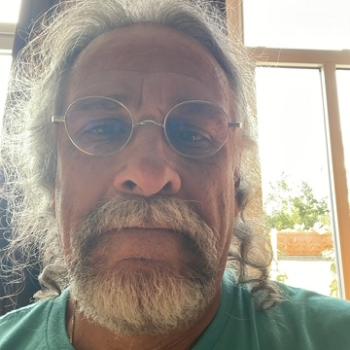Who are the Gods?
Starting from the beginning, and building off of previous works. The IE tribes stemmed from the Yamnaya culture. In our anthropological reconstructions, reaching back to just seconds before the big bang of the IE language explosion, we can barely see practice in the vocabulary of the PIE reconstructions.
TLDR: Linguistics and archeology tells us what the original Paganism was like.

Paul Theme says “”The oldest religious rites of Indo-European peoples do not presuppose temples or idols. Nor is there a reconstructible term for ‘temple’. But there is a ‘worship’, conceived as a hospitable reception with a meal, consisting of slaughtered animals, and accompanying recitation of poetry, the ‘celestials’ coming, as it were, on a visit to the ‘earthly ones’.” Pall Thieme, 1964, In Search of the Indo-Europeans, J.P. Mallory
“The oldest religious rites of Indo-European
peoples do not presuppose temples or idols. Nor
is there a reconstructible term for ‘temple’. But
there is a ‘worship’, conceived as a hospitable
reception with a meal, consisting of slaughtered
animals, and accompanying recitation of poetry,
the ‘celestials’ coming, as it were, on a visit to
the ‘earthly ones’.” Pall Thieme
In a study of the Vedas, the Eddas, the Lebor Gabala Erenn, the Iliad, Tales of Romulus and Remus, one thing is clear: the gods are immortal. They die and pop right back up, timeless and recurring like cycles of creation. Another thing is clear: the gods want good existence to continue for inhabitants of the cosmos.
The gods are a family of individual beings. In all the tales of them, they are not creators, but rather arrangers. Agni and Purusha appeared out of nowhere, produced by an eternal void before the first sacrifice brought forth cosmos. Odin as first priest slayed Ymir(Twin) who was made into cosmos by his kinfolk. Nemed entered the world from foreign otherworldly lands, and started building slaying primordials, and enslaving them to clear planes, build forts, all the while lakes burst forth. Synthetic mythological tales places Fintan, who is already Ard Brehon or Chief Judge as counterpart to Bith whose name means Cosmos or World, Cessair the Giantess’s father, whose name means cosmos.
And so the gods are produced by the pre-cosmic primordial creation substance, and then cosmos is made out of one of them. Sometimes the other gods are brought forth from this void, while others they are born as children of gods who have.
As creations, the gods are arrangers, not creators.
What is the Nature of Myth?
Is myth historical truth?
Not hard to tell. No.
Is myth referencing neanderthals, other races, or real races?
Hell no. Not races of this world’s Autecological studies.
Then what are they myths?
They are the lies that tell the truth.
Do the gods really exist?
Yes. And never in the way you think.
Do Gods Make Offerings to One Another?
Considering Odin’s eye, and that Geoffrey Keating talks about how Eriu, Fotla, and Banba worship Anu, Badb, and Macha the three morrigans, and all six of them are daughter of Ernmas, I would say yes.
Even the most high gods are reverent and make offerings… to other gods or forces of nature.
What are the Endeavors of Gods?
Not hard to tell. The gods are for a healthy Cosmos.
When we look at an consider the Theogony of the gods, that is the line of succession of power among the gods, an answer becomes clear. Theogony is a tricky thing, in some mediterranean stories, the main god of the tale with agency generally tries to ensure they are not succeeded by their descendant gods. They themselves overthrew their progenitors, and so why wouldn’t their fate become similar. This got takes the from of Zeus in mediterranean paganisms. It is as though Zeus knows that either having a good or bad god as the king of the cosmos are just as likely.
In addition to that, Indra’s battle with Vtra, Ragnarok, the 2nd Battle of Mag Tuired, all are wars in efforts to uphold a healthy cosmos.
The gods will enlist any ally they can toward these endeavors, and the role of mankind is vital, however small.
Different Pagan Theisms
Hard’n Soft
Hard polytheism is the idea each god in paganism is an individual. Gods and men share some traits because we’re beings. This mean that Hard polytheism relies ego and identity heavily, when relating to yourself. The you that you believe you are and have become, passes into the otherworld exactly as you are, excluding transformations of course. Each god is unique and the harder your polytheism the more likely you are to see Lugh and Lugus, or Wodan and Odin as separate gods.
Soft polytheism, as I describe it, is the idea that there are a handful or set number of gods and folks see those by different names. In this polytheism, all the traits of individualism remain among divine beings, only that Lugh and Lugus are the same. The softer your polytheism, you more likely you are to see all European ‘Father’ gods as the same All-Father.
Squishy
I haven’t always been a fan of squishy polytheism, but now, after some trance incidences, it is my prefered theology because it matches with my UPG experience.
This kind of theism, as I define it, states that there are an infinite number of sentient being out there, all whose traights are so diversified in every direction, that all the Jesus’ from American gods preexisted the human race already.
This view is hard to wrap your mind around at first, but it rests on the idea that there is a divine matrix of beings out there, all ranging in power from big to small. They exist in an imaginary world made of pure thought, a different flow of time, and a different set of rules. I’ve seen first hand how thoughts can become groves and caverns in my mind, and when I travel into them, entire world open and new sets of gods come forth. With infinite worlds out there there are probably infinite gods. But the bubble of cosmos we exist within is centered here. And calling for a god by his names and deeds, when one wasn’t there before, doesn’t create a god, but it pulls forth from which the same void the First Gods came. And so egregores are real gods and real gods are egregores. The “thoughtform” that is the egregore is just a trait list, a primordial phone number which dials up that being from Imagination land.
The reasons I didn’t like this theism was that I was super insecure about my pagan being real for so many years until I have my few trance experiences which sealed the deal for me. I’m not worried so much as to what the gods are now rather than what are conscious beings at all.
Just like combinations of DNA and experience make the person, a combination of qualities and lore dials up a pre-existing eternal god from a world of imagination, more real that this philosophical construct called the material world. The best part about this kind of theism, the gods are all around you, accessing and intruding upon the nemeton of your mind. Each thought has a god behind it, matching closer the experience of the world of the celtic and vedic laity. Because to them, everything from a match to a Giant is a god. Priests in the vedas drink soma to gain the wisdom which reveals the immortal nature of existence to the Mortal Mind. Their exclamations are filled with relief from fear, danger, and anxiety because we are invincible and immortal in the most real way.
Squishy polytheism doesn’t rely so much on ego, because identity doesn’t really matter because the matrix of traits of conscious beings is interdependent. One ego comes with every other possible ego and none of them can be removed or added to the system of the cosmos, as the totality of all combinations would constitute a closed whole excluding nothing but including Nothing.
Monism
Monism is the idea, first seen in early hinduism, that the idea of God is related very much with the underlying self Atman.
If your brain is hardware, and your mind is software, then your idea of self and identity can be turned off. Stored in one specific function of the mind, if it could be disabled, there would be no reason for the mind to not identify with every other thing. Yet you’d still be conscious and observing nature. In fact, this is one of many experiences reported by people using entheogens. This phenomenon is what people call ego death.
If the ego can die, but the mind still persists, who is doing the observing. When you are in an egoless state, you can’t even remember who you are or your stored behaviors. Muscle memory is gone from you and you feel a profound oneness with all things.
So who is observing through your body when the concept of you is entirely gone from you? Monists believe this consciousness, considered undifferentiated, is Atman and is produced from Brahma. If Brahma is the totality of the world operating, material and spiritual, it gives rise to pure consciousness. When the ego is added to that consciousness, its like turning water into a specific refreshment. While you are coca cola, and your brother is budweiser, Brahma is pure water.
Much in the same way that the world is one Brahma, seen like a river which branches out into individuals, the you that is observing doesn’t die when [Insert your name] dies. In this theology, the you that you self Identify with will pass on and the you that you are observing live with will be the onlookers at your funeral, as well as the unconcerned golfers swinging in the course next to the cemetery, you’ll also be everyone else.
Monism + Polytheism
I use Squishy polytheism to describe the gods, but they are clearly more than just people in the sky. When one of them was dismembered, Ymir/Purusha/Bith, they fractured into the many facets of the middle part of the cosmos. And in my personal belief, all the beings which dwell in it that aren’t born from the lineage of gods. In other words, my Brahma is Ymir. Over here you have a squishy infinite matrix of divinities, and over there, you have a similar matrix of beings who are the facets of Ymir.
I do not think, like other monists, that Ymir is whole. I carry with my polytheism, I fully utilize all: squishy hard and soft, that we are all individuals. However, Ymir is still being dismembered and that sacrificial process is the 2nd law of thermodynamics operating in the cosmos… at least locally. And so I believe that when we experience ego death in trance, we really do reclaim an objectified view on what being a being is. Your self identity eventually returns to you and in that you clarify who you really are against a backdrop of all the variations of Ymir.
Either way, if Monism is the correct view, or Polytheism is the correct view: neither are mutually exclusive. Consider that polytheism holds all these things to be true of the gods: locality, limited power, limited knowledge, desires and agendas… A monists view of “aspects” as all of these traits as well… because monists believe individual humans are aspects too.
So if we extrapolate what an individual means, we’re always working from the same reality monists work from… they just call individuality an aspect.
So no matter what, being an aspect of a single entity doesn’t exclude you from having a location, limited power, limited knowledge, desires and agendas.
But in reality if I took the sky away, or the dirt, the trees would die. So the tree is as much the sky and dirt as it is itself. In fact… a tree is a relationship between sky and dirt and transforms them into a bridge which reaches across boundaries. Can you say the tree is any kind of individual if it cannot be separated from the cosmos which grew it? That is interlocking nature of Ymir, his fractured bits, and individuality. It’s a continuum you travel through, not a destination you arrive at.
The Gods are a People.
The gods are a tribe of individuals with the same amount of individuality as you and I have. They exist in a group containing all the skill sets needed to be an integral whole. Like a family.
The Gods are Allies.
As a tribe of cosmic beings, we can seek allyship with those whose desires and and agenda’s line up with our own. We can form bonds and seek relationships with those deities willing to establish them. We worship our gods, we don’t work with them as coworkers. Alliance with them is so beneficial to us that we would sing their praises uninstigated.
What Do They Want From Us?
Relationships. We establish these by the right praise offerings, libations and gifts made or harvested by human hands. We read the myths, meet with our gods in trance and determine their tastes. Our sacrifices are the ones we wish to give them, but as with any other gifts, we give within the tastes of the deity.














